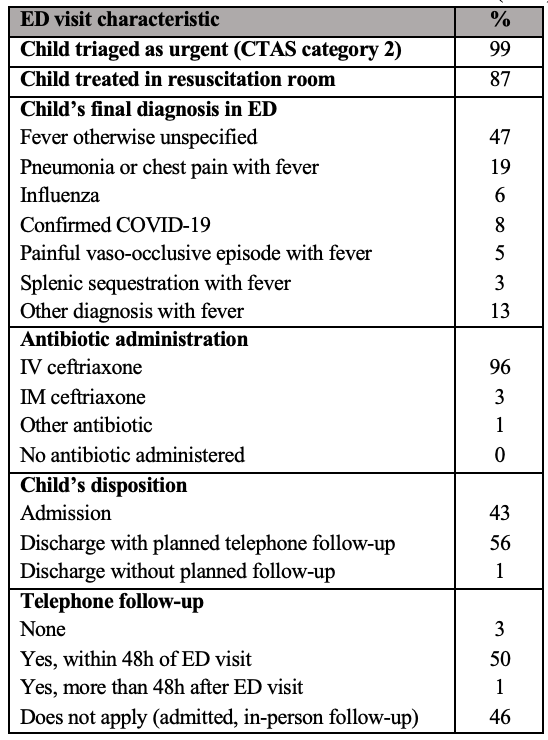Hematology/Oncology
Session: Hematology/Oncology
349 - Management of febrile episodes in children with sickle cell disease: caregivers’ experiences and priorities
Friday, May 3, 2024
5:15 PM - 7:15 PM ET
Poster Number: 349
Publication Number: 349.186
Publication Number: 349.186

Nathalie Gaucher, MD PhD FRCPC (she/her/hers)
Associate Professor
CHU Sainte-Justine
Montreal, Quebec, Canada
Presenting Author(s)
Background: Children with sickle cell disease (SCD) are at increased risk of life-threatening bacterial infection. Overwhelming sepsis may develop quickly. The need for rapid assessment and early empiric antibiotics for each febrile episode results in multiple health care visits for children with SCD and their families.
Objective: To characterize caregivers’ experiences of febrile episodes and their preferences in the healthcare management of these episodes.
Design/Methods: Prospective study of a convenience sample of caregivers of children with SCD presenting for a febrile episode to a pediatric tertiary care university hospital with a dedicated SCD hematology clinic and pediatric emergency department (ED). Inclusion criteria were children with SCD, fever, no recent opiates for pain, fluent in French/English. The 15-minute questionnaire was constructed by an interdisciplinary team of clinicians and researchers, using scientific literature, with the input from a mother of children with SCD, and pre-tested for clarity and completeness to ensure content validity.
Results: From September 2021 to March 2023, 85 caregivers completed the questionnaire (response rate 77%, median age 37 years, Table 1). Caregivers’ preferences during their hospital visits for fever are presented in Figure 1. Most questionnaires (92%) were completed during an ED visit (Table 2). Caregivers predominantly preferred visiting the specialized hematology clinic (45%) over the ED (14%) for febrile episodes, while 40% did not have a preference. However, 29% of families had never been treated for fever at the hematology clinic. Almost half of participants (44%) reported differences in IV placement techniques between the ED and the clinic, including: easier IV placement in clinic, greater parental and child trust in the hematology clinicians with established relationships, a less traumatising environment in the clinic. Caregivers provided feedback in open questions about their ED visit. Positive comments included: rapid initial assessment, clinician professionalism, standardised clinical protocols. Potential improvements for ED care included: improving IV access and procedural distress, shorter wait times after their initial assessment, lack of ED personnel, lack in continuity of care. COVID-19 concerns were also raised by approximately a third of the caregivers.
Conclusion(s): The caregivers of children with SCD presenting for fever value comfort and ease of IV placement, trust in clinicians, good communication with clinicians. They were reassured by rapid initial assessments in the ED.

.png)
.png)
